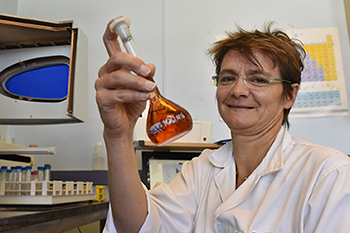Latest News Archive
Please select Category, Year, and then Month to display items
16 October 2025
|
Story Lacea Loader

The University of the Free State (UFS) has obtained an interim court order prohibiting any individuals from engaging in unlawful activities or conduct on any of its campuses.
In terms of the order, no person may amongst others:
- Participate in or promote unlawful protest action;
- Disrupt or interfere with academic or online activities;
- Block access to or from university campuses;
- Intimidate, threaten, or harass students, staff, or visitors; or
- Damage, destroy, or tamper with university property or safety equipment.
The order applies to all UFS campuses — Bloemfontein, South, and Qwaqwa — and remains in force pending the final determination of the matter.
The University urges all members of the community to respect the order and uphold a safe, conducive environment for teaching, learning, and work.
UFS Ground Studies Laboratory receives accreditation to international standard
2016-03-18

Lore-Mari Deysel, Deputy-Director of the institute for Groundwater Studies.
Photo: Charl Devenish |
The Institute for Groundwater Studies (IGS) Laboratory at the University of the Free State is on equal footing with international testing labs. With its accreditation in March 2016 by SANAS (South African National Accreditation System), the IGS Laboratory now officially meets global standards.
Quality of water
The IGS Laboratory mainly analyses the quality of water samples. When it was originally established in 1989, the lab’s central function was to conduct testing for researchers at the institute itself. “After the public and water boards realised their need to analyse water samples, the IGS Laboratory expanded to deliver a service to these clients,” says Lore-Mari Deysel, Deputy-Director of the institute.
Since suppliers and regulatory authorities will not accept test or calibration results from a lab that is not accredited, the IGS initiated the accreditation process.
Accreditation to international standard
In order to be deemed technically competent and able to receive accreditation, labs must meet the ISO/IEC 17025 standard. ISO/IEC 17025 was first issued in 1999 by the ISO (International Organization for Standardization) and the IEC (International Electrotechnical Commission).According to Deysel, this is the single most important standard for calibration and testing laboratories around the world.
“Laboratories that are accredited to this international standard have demonstrated that they are technically competent and able to produce precise and accurate test and/or calibration data. Furthermore, it demonstrates that the university has the capacity to supply valuable and reliable services alongside the academy,” Deysel says.